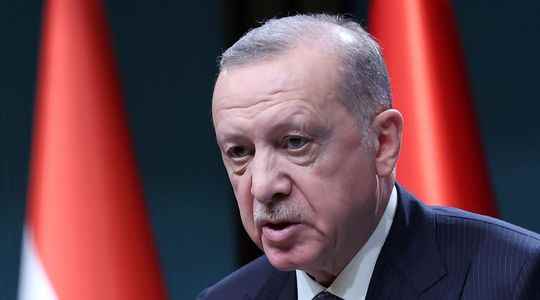We are in 2043. Second-class citizens, the Turks are confined to subordinate positions by their Syrian bosses; they are forced to speak Arabic and they are abused in the streets. The Silent Invasion, a short film released on May 3 on social networks and viewed by millions of people, has set the Turkish Internet on fire. The author, who raises the specter of a sort of “great replacement” theory with Turkish sauce, is Ümit Özdag, the leader of a new far-right formation, the Victory Party (Zafer).
“It is an ultra-minority party, but which knows how to handle the codes of social networks well and has a strong impact online”, explains Didem Danis, sociologist at Galatasaray University, in Istanbul, and director of the association of migration study. Beyond this small group, the rejection of refugees is almost unanimous within the opposition: from the IYI Party (hard right) to the CHP, the main party, whose leader proclaims at will that he “will drive all Syrians home within two years” if his camp wins the 2023 presidential election. The subject could sway undecided voters. According to a recent survey, 79% of those questioned consider that the Syrians should be expelled, and 20.6% do not decide.
In Istanbul, where around 1 million of the 3.7 million officially registered Syrian refugees reside, the popular and conservative district of Fatih has become one of their rallying points. They are not really welcome. Kubra and Aysu, two Turkish sisters aged 35 and 38, have their hair salon there. “I have Russian and Egyptian clients, but I will never let a Syrian enter my salon,” said one of them. “If she shows up, I’ll vote for Ümit Özdag, that’s for sure! We’ve abused our hospitality too much, that’s enough, I don’t feel at home in the neighborhood anymore, not to mention that the Syrians are driving up the price of rents “, they complain. The climate is all the more tense as the economic crisis is felt more painfully every day, with annual inflation of 70% in April, according to official figures. Each price increase feeds the discontent against the Islamo-nationalist government of Recep Tayyip Erdogan, but also against the refugees, the designated scapegoats.
Voluntary return program
The head of state, with wavering popularity, himself changed his speech. “We will not expel the refugees, as the opposition promises to do,” he said again last March. But on May 4, he announced a vast plan aimed at the “voluntary return of a million Syrians to their homes”, in the north of the province of Idlib – under Turkish control. The proposal seems to arouse little enthusiasm among the refugees of Fatih. “What could I do there? There is no economy, nothing at all, and then the area is not safe,” breathes Ibrahim, manager of a small grocery store.
In the Fatih district, Syrian traders are doing their best to gain acceptance: signs in Arabic have given way to signs in Turkish; Turkish flags proliferated in shop windows, some even going so far as to display a painting of Sultan Mehmet the Conqueror or Ottoman coats of arms. Hussein Krem, 32, arrived in 2016, fleeing the city of Aleppo. He works as a waiter in one of the many Syrian restaurants in the neighborhood, for an almost exclusively Arabic-speaking clientele: “I can’t motivate myself to learn Turkish. At least I don’t understand what people are saying about me !” ironically the young man. He would see himself staying in Istanbul, but lives in fear of being sent back. The chance of a police check – incomplete or forgotten papers – or any arbitrary reason may be worth being renewed manu militari. “My mother is in Egypt, she is afraid for me and advises me to join her. There is much less racism there, but I would have to obtain a passport”, he says. He still has the option of Europe, but at a high price: 12,000 euros to attempt the crossing to Greece, at the risk of failure or death.
Since 2016 and the migration pact signed between Turkey and the European Union, the road to Europe has been closed to Syrian refugees. Six billion euros from the European budget have been granted to Turkey, to which are added 3 billion from a new envelope announced in the summer of 2021. This agreement is the subject of criticism in Turkey, some considering that it constitutes an implicit pact preventing Europeans from denouncing the authoritarian drift of the Reis. “It is a shameful agreement by which the European Union betrays not only the Turks and the refugees, but also its own values”, asserts the researcher Didem Danis.
If the door to Europe is closed to them, the return to Syria of the refugees, announced to calm the opposition, seems just as illusory. The areas under Turkish control remain exposed to an offensive from Damascus, the mercenary militias supported by Ankara are engaged in almost daily battles for the control of trafficking of all kinds and the economic and health situation there is very worrying. “This voluntary return program could concern a few refugees who live in Turkey in conditions of extreme poverty, particularly in the east of the country, but certainly not a million people. In any case, the infrastructure there is not adapted to this”, judges the university. Since last year, violence against refugees has increased. They are likely to increase as economic and political pressure increases.
